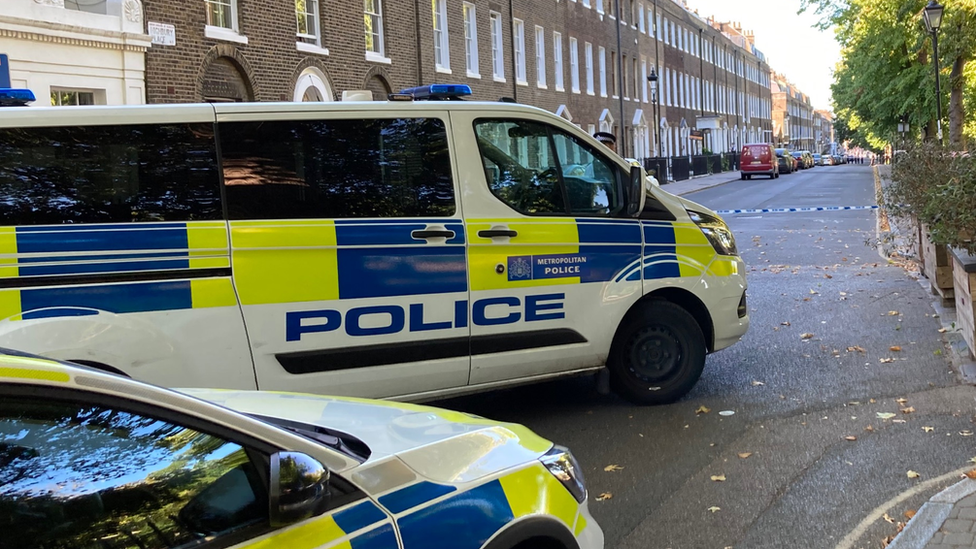London taxis: Military-grade bandages to be carried in black cabs
- Published
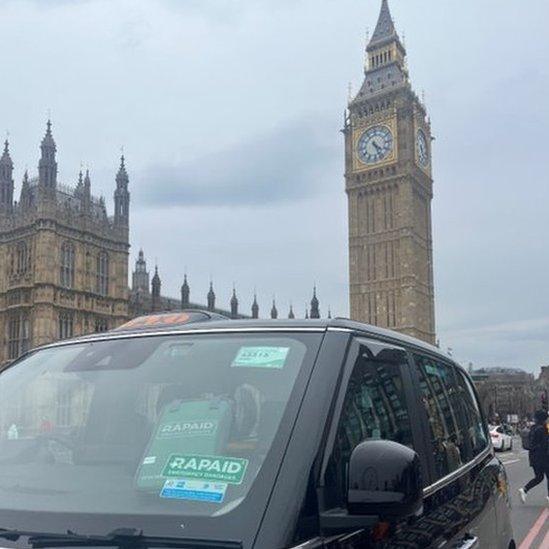
The kit will be carried in 400 black cabs
Black cabs are being equipped with lifesaving bandages in a scheme approved by Transport for London.
The kit will be carried in 400 London taxis, which will have a sticker attached allowing emergency services and passers-by to identify them.
Up to 18kg of pressure can be applied to a bleed injury through the use of the bandages, the charity Rapaid said.
It said the kit could be invaluable in the "first golden minutes until help arrives".
The charity's founder Alex Chivers said the idea behind the initiative was to enable bystanders, victims and first responders to stem blood loss sustained in knife attacks or serious accidents.
A pressure applicator is placed over the wound, which allows the direction of the bandage to be changed and for it to be wrapped around the wound in various directions.
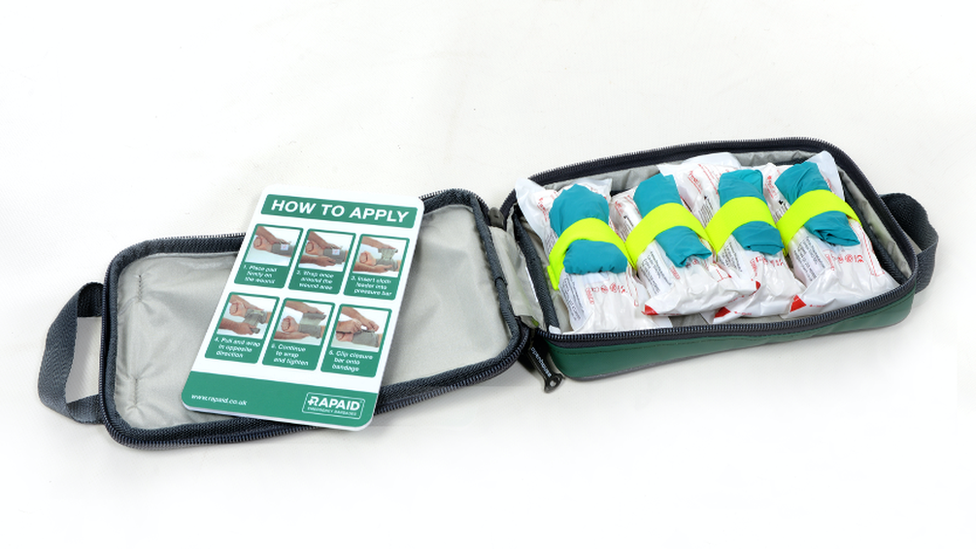
The Licensed Taxi Drivers Association said black cabs were "ideally placed" to carry the bandages
Mr Chivers, a former special forces soldier and Wiltshire Police firearms officer, said: "It made perfect sense for taxi-cabs to carry the same pressure-bar bandages designed for the battlefield.
"With a serious haemorrhage you can bleed to death in under five minutes - time literally does save lives."
Steve McNamara, general secretary of the Licensed Taxi Drivers Association, welcomed the scheme.
He said black cabs were "ideally placed to carry these bandages, with participating taxis able to be quickly flagged down in an emergency or drivers to pull over and help if they come across a serious incident or life-threatening situation".
He added: "Cabbies often stop to assist people in distress and help keep Londoners safe when the worst happens. Now they will be better equipped to do so."
The implementation of the scheme in London follows trials in cities including Manchester, Oxford and Exeter.

Follow BBC London on Facebook, external, Twitter , externaland Instagram, external. Send your story ideas to hellobbclondon@bbc.co.uk, external
- Published17 March 2023
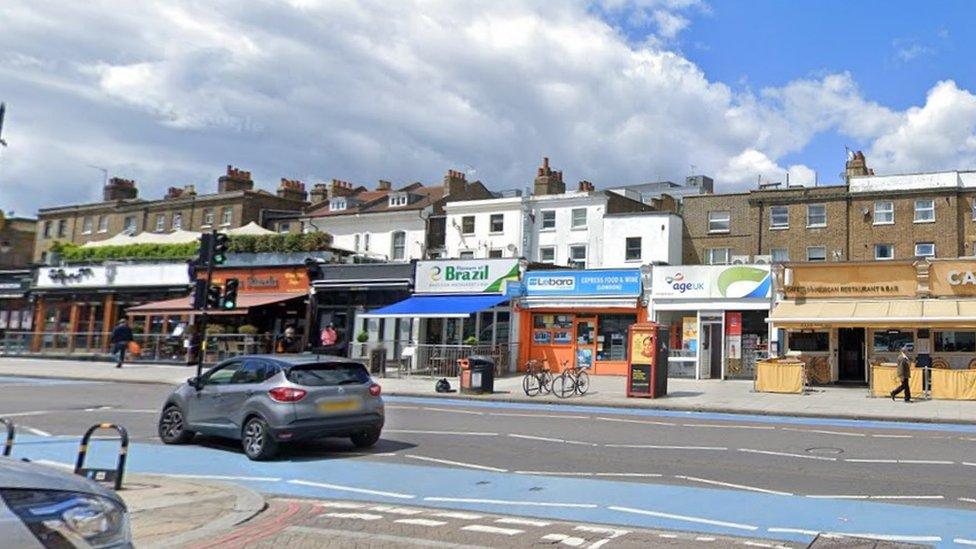
- Published8 March 2023
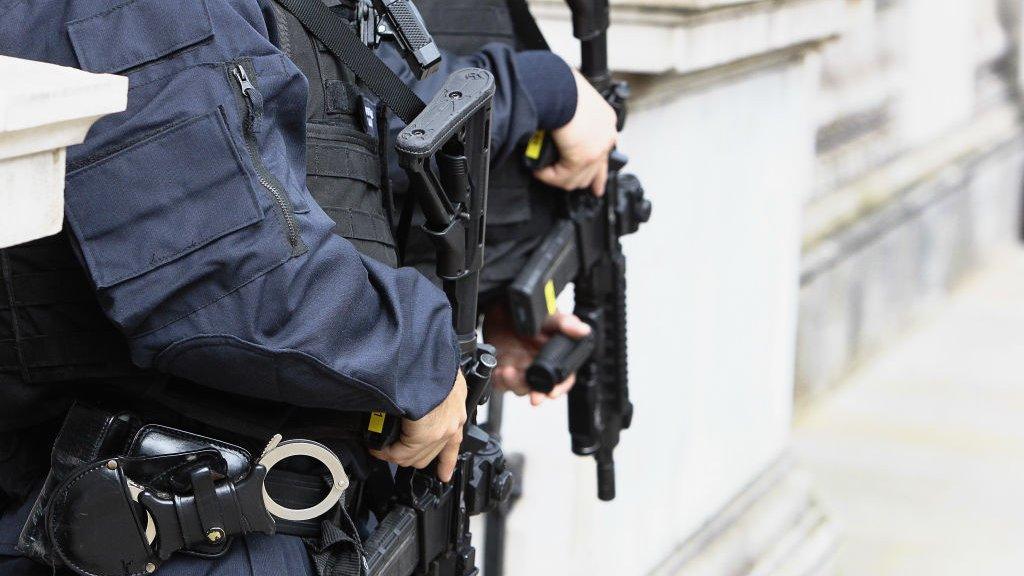
- Published15 November 2022
